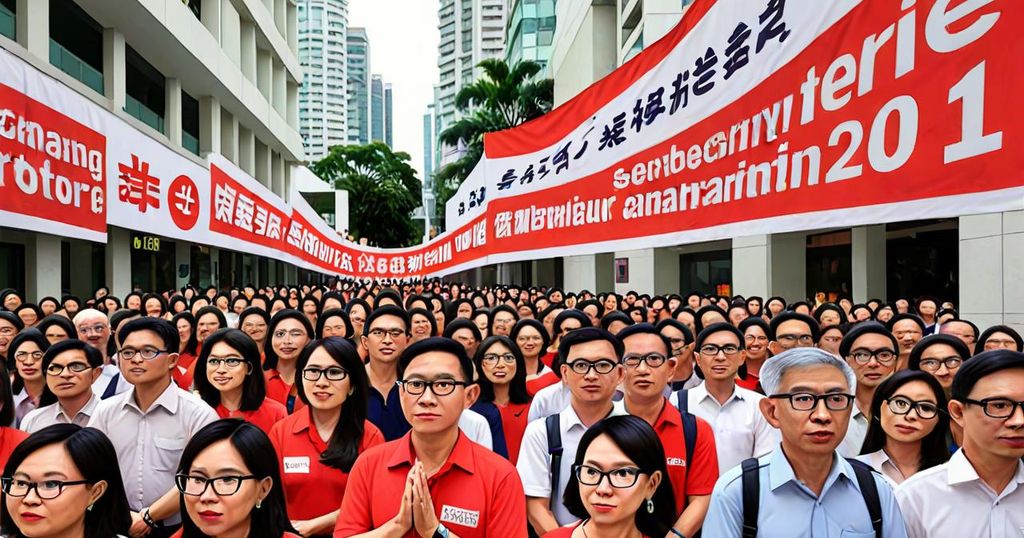The anticipation for the upcoming general election in Singapore has been steadily growing, with rumors suggesting that it could occur as early as September. However, at present, the crucial first step to initiate the polls has not been taken, as the Elections Department confirmed that the Electoral Boundaries Review Committee (EBRC) has not been convened.
The formation of the EBRC has traditionally served as a reliable indicator that an election is on the horizon. Despite the absence of this committee, the public’s anticipation for a potential election stems from the recent transfer of leadership from Senior Minister Lee Hsien Loong to Prime Minister Lawrence Wong. Some observers speculate that PM Wong’s upcoming platform at the National Day Rally in August could be utilized to outline his vision and unite the nation, further fueling speculation of a possible September election.
The timing of September has generated interest due to its alignment with the school exam period, making it convenient for schools to serve as nomination and polling centers, with teachers typically recruited as polling agents. Moreover, the upcoming school holidays at the end of August may present a suitable window for a September election in 2024.
However, political analysts stress that the timeframe for a September election is diminishing. The absence of an official requirement for the formation of the EBRC has created a level of uncertainty, as Prime Ministers historically announced its creation, a practice which was discontinued by recent leaders. The EBRC’s responsibilities involve the delineation of electoral boundaries based on specific guidelines from the Prime Minister, often involving key government agencies and comprising a team of five members.
Experts question the feasibility of the EBRC completing its tasks in time for a September election, emphasizing the need for updated demographic data and the necessary adjustments to the electoral boundaries. The recent directive from Prime Minister Lawrence Wong for the revision of Registers of Electors could provide the committee with the most recent population statistics for its considerations.
While some analysts believe in the possibility of a September election, others expect a more deliberate approach. Given the current external environment and unresolved global issues, PM Wong’s handling of the Budget statement and the People’s Action Party’s (PAP) preparation for an electoral contest could significantly impact the timing of the election. Furthermore, the ruling party’s strategy to address pressing public concerns and solicit widespread support may influence the decision on when to proceed with the polls.
In essence, the speculation surrounding a September election in Singapore reflects the underlying anticipation for a new chapter in the nation’s political landscape. As the window for a potential election continues to narrow, the entire country remains on the edge of their seats, waiting to witness the emergence of the electoral battleground and the subsequent electoral campaign that will shape the future of Singapore.

Leave a Reply